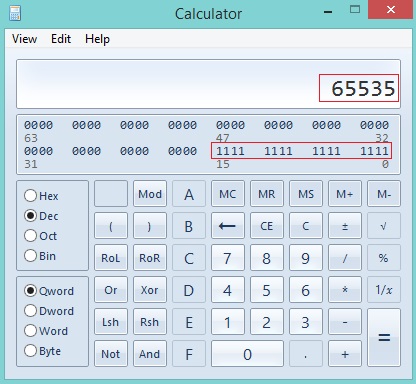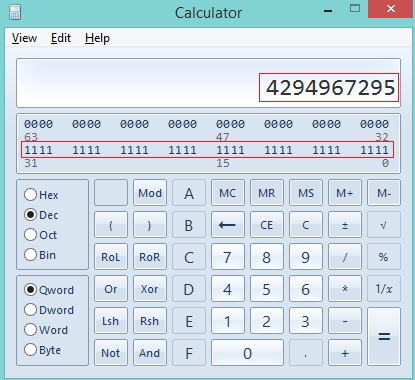Home »
C programming language
Difference between short, short int and int data types in C programming
In this tutorial we will learn what is the difference between short, short int and int data types in c programming language?
short or short int
Both data types are same, short int can also be written as short; short occupies 2 bytes in the memory.
Here is the size and value range of short or short int
| short or short int or signed short int |
2 Bytes |
-32,768 to 32,767 |
| unsigned short or unsigned short int |
2 Bytes |
0 to 65,535 |
Here is the proof
short, signed short or signed short int stores 15 bits of data, last bit represents sign

unsigned short or unsigned short int stores 16 bits of data

Consider this program:
int main()
{
printf("size of short : %d\n",sizeof(short));
printf("size of short int : %d\n",sizeof(short int));
printf("size of signed short : %d\n",sizeof(signed short));
printf("size of signed short int : %d\n",sizeof(signed short int));
return 0;
}
Output
size of short : 2
size of short int : 2
size of signed short: 2
size of signed short int: 2
int
Data type int (Integer) occupies 4 bytes in the memory.
Here is the size and value range of int
| signed int or int |
4 Bytes |
-2,147,483,648 to 2,147,483,647 |
| unsigned int |
4 Bytes |
0 to 4,294,967,295 |
Here is the proof
signed int or int stores 31 bits of data, last bit represents sign

unsigned int stores 32 bits of data

Consider this program:
int main()
{
printf("size of int : %d\n",sizeof(int));
printf("size of signed int : %d\n",sizeof(signed int));
printf("size of unsigned : %d\n",sizeof(unsigned int));
return 0;
}
Output
size of int : 4
size of signed int : 4
size of unsigned: 4
Note: Size and data range may vary according to computer architecture, we are writing based on 32 bits computer architecture, compiler Linux GCC.
Advertisement
Advertisement